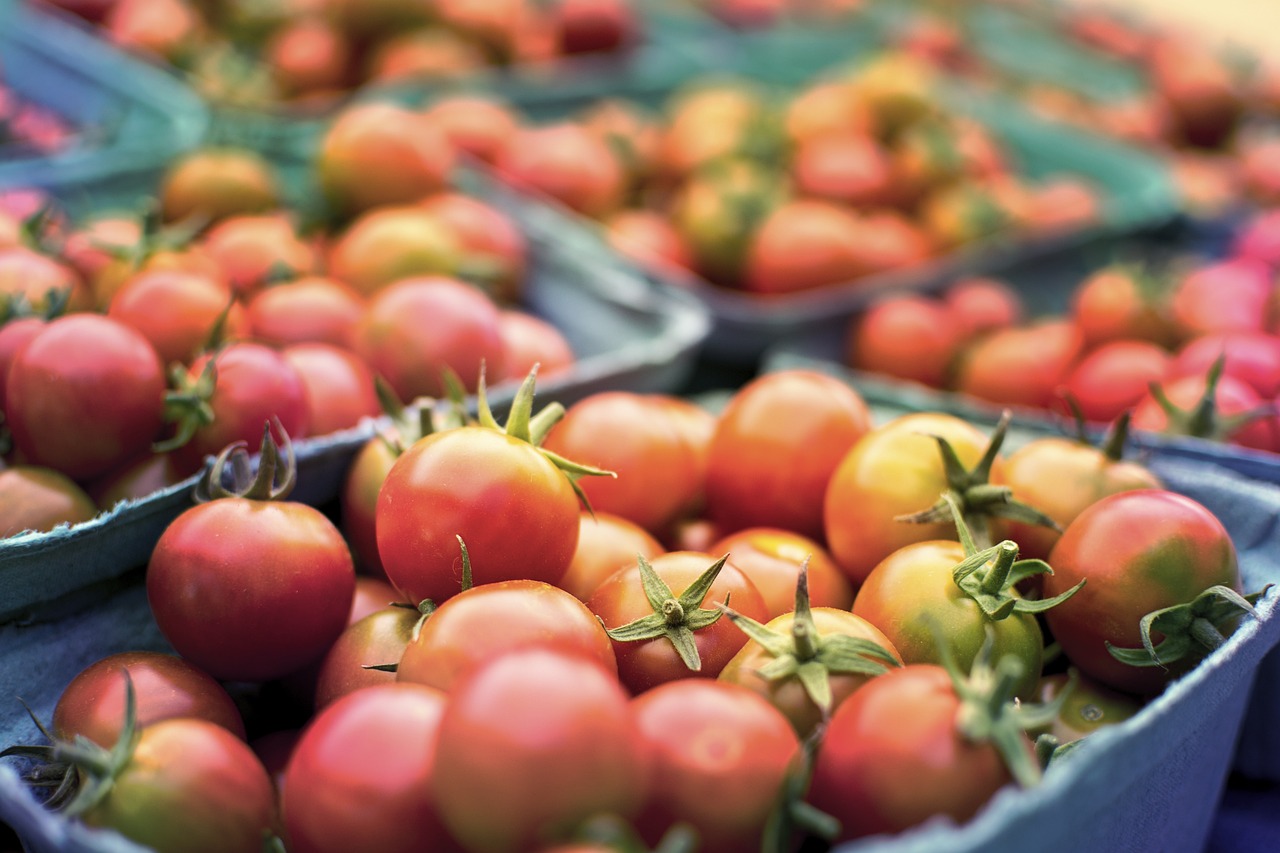All over the world, people are having to deal with what seems like a barrage of unending economic uncertainty and soaring prices, but Austria in particular has been grappling with some of the highest inflation rates in Europe.
Quite understandably, our initial reaction to out-of-control price hikes tends to focus on one thing: earning more money. But in our efforts to manage our money more diligently, we often forget that our choices as consumers can have just as significant an impact on our bank balances.
Where you shop for groceries is one such choice, and with inflation pushing up food prices by as much as 30 percent, you can make regular and sizeable savings simply by being more selective in where you shop.
Since the beginning of 2023, after seeing a pack of tri-colour peppers at an eye-watering €3.99, I have been making a concerted effort to reduce my household food expenses by thinking more carefully about where I shop, and in doing so have made some considerable savings.
To help you make more informed shopping decisions, I have recently conducted a price comparison of essential food shops across three major supermarket chains in Austria.
READ ALSO: Everything you need to know about supermarkets in Austria
The three supermarkets:
As a resident of Austria, you will likely be familiar with the market chains: Spar, Billa and Hofer. Outlets for all three companies can be found throughout Austria, yet they differ substantially in their prices and respective reputations for variety, quality, and promotional offers.
Spar: Der österreichische Supermarkt in Ihrer Nähe! (The Austrian supermarket near you)
With over 1,500 locations across the country, Spar is central to the Austrian food shop. Whether you’re in Vienna, Vorarlberg, or an out-of-the-way mountain village, the chances are there is, indeed, a spar store “near you”.

Particularly in the case of its larger INTERSPAR stores, the Dutch supermarket chain offers a much wider choice of products compared to Billa and Hofer, and with the introduction of its new app, shoppers can now get immediate access to a limited number of 25 percent off discounts for their most expensive items.
Billa: A portmanteau of “billiger Laden” (cheap shop)
Billa, with over 1,000 outlets in Austria, has been serving Austrians since 1953, offering a diverse range of products to meet their daily requirements. The chain often includes 25 percent off discount stickers in their mail-marketing brochures, so shoppers can enjoy regular savings on their most expensive purchases.
This, coupled with its loyalty card scheme JÖ, makes it a popular choice for those who like big promotions and exclusive offers.
Hofer: Da bin ich mir sicher (I’m sure)
Hofer, known in some parts of the world as Aldi, has revolutionized the food shopping experience with its commitment to affordability. With over 500 locations across Austria, Hofer has become synonymous with budget-friendly shopping. This discount supermarket offers no-frills shopping, focusing on the essentials with an albeit smaller range of products.
The results:
Having compiled a shopping list of general food staples and essentials, I took to the shops to see which would cause the least amount of damage to my budget. It should be noted that the products across Spar, Billa and Hofer are often from independent producers and don’t always share the same brand, so in order to maintain a fair comparison, items were compared according to quality and price level i.e., store brand bio products were always compared with other store brand bio products, as were budget brand items.
Below is the list of items that were compared across the three stores:
*Onions (1kg)
Peppers (x1)
Midi vine tomatoes (1kg)
Potatoes (1kg),
Bananas (1kg)
Apples (1kg)
*Eggs (10x L)
Butter (250g)
Full-fat Milk (1l)
Chicken (1kg)
*Olive oil (750ml)
Flour (1kg)
Sugar (1kg)
Bread roll (Kaisersemmel x1)
*Sausages (240g)
Cheese (175g)
*Adjustments in price were made to items sold in different weights or quantities.
The total bill for each shop came to:
Spar: €76,06
Billa: €76,86
Hofer: €67,79
So, there you have it. Of the three, Hofer emerges as the more economical choice with prices over 10 percent cheaper on average than those of its rivals.
But as you’ll by now be aware, each shop has its own benefits and drawbacks, and price alone might not be the sole determinant for where you decide to shop.

Things to consider:
No single shop provides everything: It’s crucial to note that the above comparison does not factor in the various promotional offers and discount schemes unique to each store, nor does it account for our individual tastes in choice and quality. To maximise your savings, I encourage you to take full advantage of Billa and Spar’s 25 percent off stickers, using them for items not available at Hofer or when they offer a better deal.
READ ALSO: Where to find international food in Austria
Distance: Living in Vienna, I am fortunate enough to have all three stores within walking distance of my home, though I understand this to be the exception rather than the rule. That being said, with Hofer being the farthest of the three, I’m still forced to give up more of my time in order to benefit from the lower costs. The optimists among you may, however, join me in viewing this longer trek to the shop as an opportunity for exercise. Consider your new trip to Hofer as a means of improving both your physical and financial health.
Quality: Having shopped at all three chains for more than five years, I’ve found no substantial differences in the quality of their products, especially when it comes to essential food items. Given the significantly lower prices Hofer has to offer, any shopper who prefers Billa and Spar products may still be inclined to overlook certain drops in quality in order to save money.
Keep up-to-date: To aid consumers in battling rising food prices, the ÖVP Minister of Economic Affairs Martin Kocher has proposed a law mandating all major supermarkets to publish their food prices on comparison platforms. While they don’t yet provide a fully comprehensive list of every store’s pricing, you can compare many of your shopping list items already at https://www.supermarkt.at/.




 Please whitelist us to continue reading.
Please whitelist us to continue reading.
Member comments